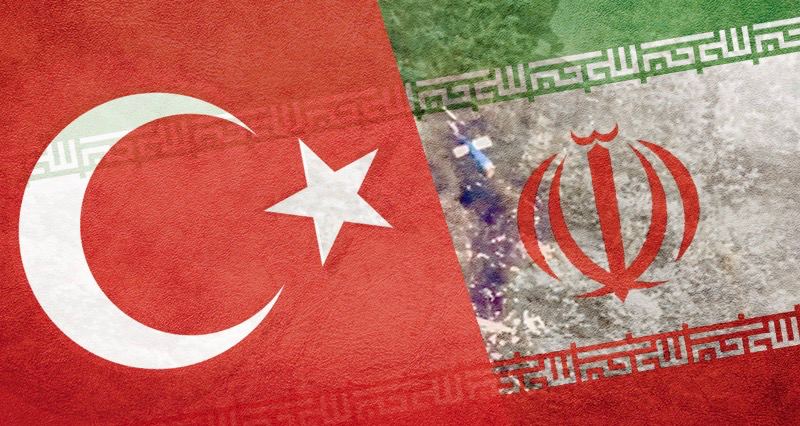Iranian President Ebrahim Raisi and Foreign Minister Hossein Amirabdollahian, along with other officials, passed away in the helicopter crash in northwestern Iran on 19th May.
UWI author, historian and political scientist Mehmet Perinçek shared his evaluation on the incident in a broader regional and international perspective.
Could you give your overall view on the helicopter crash?
A few days before the death of Iran’s President Ebrahim Raisi, there was an assassination attempt on the Slovakian Prime Minister. Going back a few more days, though unconfirmed, there were reports from Israeli sources about an assassination attempt on Saudi Arabia’s Crown Prince. All these events indicate a danger.
Assassination attempt on Robert Fico
The Slovakian Prime Minister Robert Fico is a leader who does not conform to the expectations of the US, especially regarding Ukraine. Fico pursues a foreign policy based on his country’s interests. The assassination attempt on him aimed to eliminate such a “dissenting” leader and send a message to leaders and countries with similar policies, such as Orbán and Vucic in Hungary and Serbia: ‘If you continue on this path, this can also happen to you’. Immediately after the assassination attempt on Fico, Serbian officials stated that threats and various attempts against Vučić had increased.
The assassination news concerning the Crown Prince of Saudi Arabia also stems from similar reasons. Saudi Arabia is ceasing to act under US control, pursuing a policy contrary to the US’s strategy of strangling Russia through oil prices. Saudi Arabia is also developing military and trade relations with China.
Looking at Türkiye, the country also experienced tough processes such as the coup attempt by the US-backed Fethullah Gülen Terrorist Organization (FETÖ) on July 15, 2016. The effort to purge FETÖ from public institutions is still ongoing.
Lessons to be drawn
What should we understand and learn from all this? The enemy is always the enemy and can resort to any kind of conspiracy and violence, including coups and assassinations. US and Western imperialism are now in a mood of panic due to the rise of the multipolar world. They are losing their hegemony, failing in Ukraine, Syria, West Asia, Palestine and the South Caucasus, and losing their so-called allies like the Gulf countries. This fear of losing and the panic bring up the possibility that they may resort to any kind of violence.
Therefore, what we should learn is that the stronger, more alert, and better prepared your defense mechanisms are—in short, the fewer deficiencies you have—the better you can defend yourself. This is the lesson to be drawn from all the developments I mentioned above.
Deficiencies and immunity
Speaking for Türkiye, the biggest issue Türkiye faces is neither American imperialism nor the pro-American opposition within. The most significant problem is the current deficiencies of the Turkish state. The death of the Iranian president, unfortunately, also points to such deficiencies in Iran. An adequate force is required to cope with threats in areas of the economy, security policies, and foreign policy. There are millions of germs and bacteria in the room we are in. If you smoke five packs a day and don’t take care of yourself, they will make you sick. Should we blame the germs and bacteria? They are always there. The matter is whether your body is immune.
To make it clear: Imperialism does not necessarily need to carry out assassinations to exploit your deficiencies. They can also control you and make you do what they want by threatening to exploit your various vulnerabilities.
Another dimension is how ideologically and resolutely prepared your society is, or to put in another way, how well the state prepares its society. These questions are actual for Türkiye and all countries targeted by imperialism.
“Domestic policy and foreign policy are interconnected”
What would be the projection of what you said so far for the relations between the countries in the region?
First of all, each country must be prepared in terms of their economy, state, military, and society. Countries must eliminate pro-American and pro-Western forces within themselves. For example, in Türkiye, there are still those who say, “The European Union is a strategic choice and goal for us”. In Russia, especially in the economic sphere, pro-Western liberal ideas still hold significant power.
In addition, given the scale of the threats we face, it is impossible for a single country to withstand them alone, which gives birth to the need for regional cooperation. We can understand that domestic policy and foreign policy are interconnected in this way: For example, in Türkiye, supporters of the European Union also oppose Türkiye developing its relations with Russia and Iran, and making peace with the Syrian government. We talked about regional cooperation and relations between neighboring countries here. However, this should not be kept limited; all countries outside the US and Western imperialism, including countries in Africa and South America, are also within the potential set for alliance.
To draw attention in this context, another source of deficiency that imperialism partly generates and partly exploits is pitting countries in the region against each other and fostering conflicts among them.

















Leave a Reply